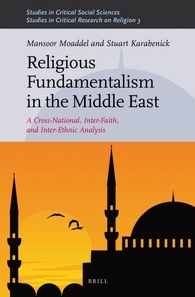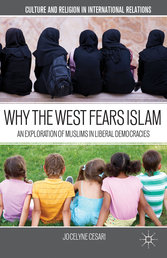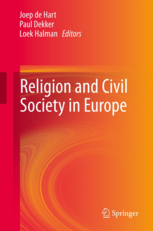Conference announcement
RC43 Religion and Politics and the ECPR Standing Group on Religion and Politics organize with the financial support of Brigham Young University, International Political Science Association, European Consortium for Political Research and the Centre for the Study of Conflict and Cooperation, a conference themed Religion, Democracy and Law, to be held at the London Metropolitan University on January 14-15, 2014.
Conference website.
Keynote speakers
Professor Sharyl Cross
Distinguished professor and director of Kozmetsky Center of Excellence (Global Studies), St. Edwards University, USA
Professor David Kirkham
Senior Fellow for Comparitive Law and International Policy at the BYU International Center for law and Religion Studies, Brigham Young University, USA
One more keynote speaker to be confirmed
PANELS:
1: Religious Dissent in the Global Political Economy
Alexandre Christoyannopoulos, Loughbourough University, UK
a.christoyannopoulos@gmail.com
Protest movements have spread across the globe in recent years, in many cases directly or indirectly expressing dissent from the ‘neoliberal’ policies steering the global political economy. However, the role of religion in those remains somewhat under-explored. Religion is often perceived to be an ally of the status quo, yet whether in Occupy London, in the pronouncements of Pope Francis or in the Egyptian revolution, religious actors can also side with those resisting political and economic orthodoxies. The aim of this panel is to examine such religious dissenters and discuss the role of religion in resistance to the global political economy. Proposals which focus on specific actors and movements or on the theoretical arguments which they employ will all be considered, as will proposals which engage with any religious tradition and which adopt any academic methodology.
2: Political Theology: A Sign of the Times in Periods of Institutional Crisis
Emilce Cuda, Department of Theology, Pontificia Universidad Catolica, Argentina
emilcecuda@gmail.com
According to Carl Schmitt: "political concepts are secularized theological concepts." But the opposite could also be argued, as claimed by Jan Assmann: "theological concepts are theologized political concepts ". History offers examples which confirm each claim. Even in the late modern period, liberalism could not avoid ‘contamination’ between theology and politics. Debates from Eusebius of Cesaria in the court of Constantine to Pope Francis in the global village can be analysed from this political-theological perspective, in both directions. The political field today still offers multiple manifestations of this ancient formula "political theology", an ineffable formula, and as such, is always present. Both European totalitarianism of the first half of the twentieth century and Third World dictatorships in the second half of that century have been analysed as examples of secularization of theology. Likewise, the revolutionary political movements and theologies of liberation in Latin America, Africa and Asia have been analysed as an example of the inverse, the ‘theologization’ of politics. Consequently, we can believe that scientific inquiry of current social events, involving certain categories of political theology, can help in understanding political demonstrations in the early 21st century.
The focus of the panel is as follows: Can the global institutional crisis - which prevents some non-European governments from conforming to Europe, which led to the resignation of the Pope, and in which liberal democracy appears to become a species of populism beyond Europe - be clarified if addressed conceptually from the point of view of political theology?Does the theological-political liturgy, which seems to support both current democratic institutions and ancient religious institutions, perform an aesthetic or a legal function?
PANELISTS: Emilce Cuda (Buenos Aires, Argentina), José Fernández Vega (Buenos Aires, Argentina) Chantal Muffe (Londres, Inglaterra) , Hans Egil Offerdal (Bergen, Noruega).
3: Public Debates on Religious/Ethical Issues in Western Europe
Alberta Giorgi, University of Coimbra, Portugal
albertagiorgi@ces.uc.pt
Luca Ozzano, University of Turin, Italy
luca.ozzano@unito.it
A number of controversies related to religious issues have characterised the European public debate in recent years, at both the EU and the country members level. The ‘affaire du foulard’ in France (2004-2011), the referendum on abortion in Portugal (2007), the recognition of same-sex marriages in many Western European States – from Belgium (2003), to Spain (2005), to France (2013) –, the debate over bioethics and the regulation of euthanasia (legalized in Belgium and the Netherlands – 2002), as well as the discussion on religious pluralism and the religious roots of Europe in the EU Constitution, are only a few examples of contentious issues involving religion. All these debates have been at the centre of the political and public spheres across Europe, contributing to revive the attention towards the role of religion in contemporary societies, and highlighting the diverse forms of political secularism in Europe, but also other issues, such as the right of the national/supranational institutions to regulate matters related to the private lives of European citizens. This panel aims at analysing this recent evolution of the Western European public and political debate, by providing insights on the actors who started the debates and their interrelations, their motives and the arguments they put forward. Both single-case studies and broad comparative analyses are welcome.
4: The Future of the European Union and Religion
Miro Jevtic, University of Belgrade, Serbia
jevticmiroljub@yahoo.com
One of the most important questions for the EU is whether this political formation will survive or not? While the answer to this depends on many factors, the issue of religion is surely an important component. In particular, does the current religious structure of the EU have positive or negative effects on the community’s survival and continuance? Differences concerning this question came into focus during the recent discussions about the putative EU constitution preamble. On one hand, we had a group of political figures and parties demanding that the preamble should explicitly refer to the EU’s Judeo – Christian traditions. On the other hand, there were other political leaders and parties against the proposal to include the EU’s Judeo – Christian traditions in the preamble. This debate reflects the fact that in recent times, the religious structure of the EU has become more complex. Initially, Roman Catholicism and Protestantism were dominant faiths within the EU’s borders. Now,
however, following the accession of Bulgaria, Romania, Cyprus and Greece, a strong Christian Orthodox block has developed. In addition, many EU countries have many non–Christian immigrants, including: Muslims, Hindus, and Buddhists, a development with significant influence on relationships within the community. This panel invites papers that focus on the increasing religious heterogeneity of the EU and reflect on how this is likely to impact on the future development of the EU.
5: Representing Non-Religion
Steve Kettell, University of Warwick, UK
s.kettell@warwick.ac.uk
In recent years, debates about the relationship between religion and non-religion have become increasingly prominent in the media, in academia and in social and political life. This has been accompanied by growing interest in issues around ‘non-religion’, including processes of secularisation, the dynamics and normative merits of secularism and the emergence of ‘new atheist’ critiques of religious beliefs and practices. This panel explores a variety of issues engaged with the construction and representation of ‘non-religion’ in contemporary Britain. Some of the key themes include the political aims and strategies of non-religious cause groups and activists, discourses of militant or radical secularism, and questions about the representation of non-religion in terms of domestic equality, human rights and religion or belief legislation.
6: Religion and Legal Boundaries in Islamic Contexts
Carimo Mohomed, Faculty of Social Sciences and Humanities, New University of Lisbon, Portugal
mohomed.carimo@gmail.com
The “Islamic World” is a huge area of land, with almost 1.6 billion people, integrating multiple different cultural, ethnic and political entities. In the contemporary period religious institutions, movements, and beliefs have had more political importance in the Muslim world than in the West. Although attributed to special features of Islam, which are of some importance, there are other causes, such as, first, different historical experiences in the West and in the Islamic world, and, second, the imperial and colonial experiences suffered by Muslims which made them defensive about Islam and to define (as did some Westerners) the situation in religious terms. One aspect which is usually focused is the Shari’a (normally translated as Islamic Law, but which is a concept with different connotations according to Time and Space) as if one single legal building were used from Morocco to Indonesia, thus giving to that geographical mass some kind of religious connotation. This grill of analysis ignores the different situations in different parts of the Islamic world, where there are countries which until recently were considered secularists but had a state religion (Egypt), or countries which do not have state religion but where the president must be a Muslim (Syria), or countries where the head of the state is also the Prince of the Faithful (Morocco), something that does not impede political groups of using Islam to delegitimize the political establishment. The aims of this panel are to analyse the diversity of political situations and the role of religion in different contexts of the Islamic world, using especially, but not only, the legal frameworks as they exist and how they are applied in society.
7: Religious Conservatism versus Universal Human Rights? The Struggle for LGBTi Rights in Africa
Martin Ridley, London Metropolitan University, UK
Martin.E.Ridley@btopenworld.com
The objective of this panel is to explore the tensions that have emerged, as LGBTi groups demand equal rights and freedom from discrimination in SSA. These tensions highlight the competing paradigms of morality and inclusion that have emerged between the Global North and sub-Saharan African (SSA) countries. Questions of international law, domestic law, and local cultural norms in SSA will be considered, and of significant import the role of external political and religious groups that invest in and seek to erode the poor experience of sexual minorities. This can be understood within the context of a larger human rights conflict within the international system. The question of a core set of human rights, universal in application that either replaces or supplements local normative values is central to the arguments about the question of LGBTi rights in an African political and cultural setting; this panel will seek to identify the actors and issues involved.
8: Individual Attitudes towards Religion and Politics
Jolanda van der Noll, UC Louvain, Belgium
jolanda.vandernoll@uclouvain.be
The revival of religion as a political force in national and international settings, has led to a renewed interest in examining relations between religion and socio-political attitudes. Although religiosity is often thought to have a diminishing effect on democratic attitudes, recent studies have stressed that the multi-dimensionality of religion, such as the content of religious belief or the participation in a social religious network, can have differentiated effects on democratic and other socio-political attitudes. The aim of this panel is to bring together papers from scholars who are interested in examining the interplay between religion and socio-political attitudes. It invites papers that include quantitative or qualitative empirical analyses of individual attitudes towards religion, democracy, freedom of religion and related concepts.
9: Religious Fundamentalism, Egalitarianism and Informal Law
Dr. Yohai Hakak, School of Health Sciences and Social Work, Portsmouth University, UK
yohai.hakak@port.ac.uk
Fundamentalist religious communities are usually portrayed as patriarchal in relation to women, and authoritative towards children and young people. In this lecture I will explore three cases in which a fundamentalist group, the Jewish Israeli Haredi (Ultra Orthodox) community, uses egalitarian discourses and practices. My claim here is that egalitarianism is a tool, used by the community to prevent members’ defection or to bring back members who have already defected. Egalitarianism or equality between members can be increased or reduced, according to changing needs. While egalitarianism is emphasized among members, condescension is emphasized with relation to the ‘outside’ of the community, which is often portrayed as unequal and abusive. As part of these attempts, Western psychological, feminist and democratic discourses, which are usually considered to be alien to the community, are incorporated.
10: Gender and Secularization
Yolande Cohen, University of Quebec at Montreal, Canada
yjcohen@sympatico.ca
ABSTRACT TO FOLLOW
How to participate?
If you are interested in presenting a paper, please contact the panel organizers with an abstract (max. 300 words) before August 30, 2013
Registration fee: £50 (c.€60, $75) for the two-day conference.
Conference registration open soon. For pre-registration, please email Jeff Haynes






